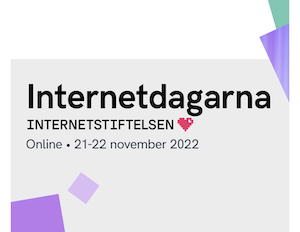Astor Nummelin Carlberg
See the following -
Convening Public Benefit And Charitable Foundations Working In Open Domains
 The public policy team of the Open Source Initiative (OSI) has launched the Open Policy Alliance (OPA), a new program aimed at building and supporting a coalition of underrepresented voices from public benefit and charitable foundations. The OPA, has been created in response to increased demand for public dialog and stakeholder engagement in the Open Source software community as well as adjacent areas such as open content, research, AI and data. Open Source ecosystem veteran Deborah Bryant, OSI US policy director, will lead the program. “While Open Source is a global, borderless activity, public policies are developed locally,” said Bryant. “The OPA will focus on education in the US while exchanging and sharing information with like-minded organizations globally. The OPA seeks to empower these voices and enable them to actively participate in educating and informing US public policy decisions related to Open Source software, content, research and education.”
The public policy team of the Open Source Initiative (OSI) has launched the Open Policy Alliance (OPA), a new program aimed at building and supporting a coalition of underrepresented voices from public benefit and charitable foundations. The OPA, has been created in response to increased demand for public dialog and stakeholder engagement in the Open Source software community as well as adjacent areas such as open content, research, AI and data. Open Source ecosystem veteran Deborah Bryant, OSI US policy director, will lead the program. “While Open Source is a global, borderless activity, public policies are developed locally,” said Bryant. “The OPA will focus on education in the US while exchanging and sharing information with like-minded organizations globally. The OPA seeks to empower these voices and enable them to actively participate in educating and informing US public policy decisions related to Open Source software, content, research and education.”
- Login to post comments
Open Source as Sustainable Digital Infrastructure - OpenForum Europe
OpenForum Europe (OFE), together with the Swedish Public Sector Network Open Source and Data, are organizing a track on Cybersecurity, sustainability and Digital Sovereignty as part of the Internet Days in Stockholm, Sweden. Open source software is a critical and extensive part of our common digital infrastructure. It presents both opportunities and risks. Opportunities such as enhanced interoperability of infrastructure and services within and across borders, as well as reducing dependencies and lock-in to individual vendors and system solutions. The risks stem from sustainability issues and include the fact that many open source applications are maintained by volunteers and there is a general under-investment in maintenance.

This in a rapidly changing geopolitical and digital environment, where vulnerabilities, introduced knowingly or unknowingly, are increasingly at risk of being exploited by malicious third parties with potentially major consequences. As the public sector intends to reuse more of each other’s digital infrastructure, there is a growing need to ensure that what we do is secure. Therefore, this thematic track aims to show the extent of open source software in our own and shared digital infrastructure, and its importance for our digital sovereignty and cybersecurity.
- Login to post comments